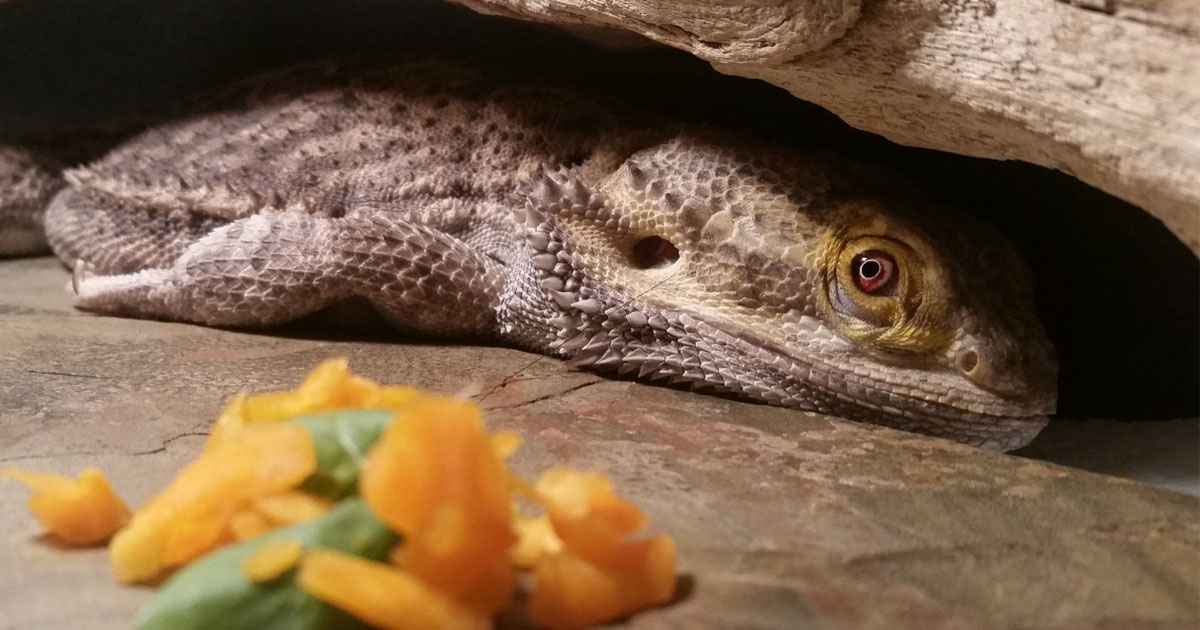Bearded Dragon Care During Brumation

What is Brumation
Brumation is a Bearded Dragon’s version of hibernation (a period of dormancy). In the wild, Bearded Dragons will begin brumation to survive colder temps and lack of food. Of course, brumation often occurs during winter season. In captivity, not all Bearded Dragons will go through brumation nor is it necessary considering Bearded Dragon owners control their temperatures and diet all year round. Regardless, it is still possible for captive bearded dragons (that are at least 1 year old) to brumate.
Brumation Symptoms
If a Bearded Dragon is brumating, then the reptile may become less active, may be seen sleeping more often than usual, and may be eating less. Overall, the Bearded Dragon will appear lethargic. If you suspect your Bearded Dragon to be brumating, then there are a few things that you should do.
1) Check For Illnesses
Unfortunately, some people make the mistake of assuming their Bearded Dragon is brumating when the reptile is actually ill. In other words, acting lethargic and not eating (weight loss) could also be symptoms of an illness. Therefore, you should always make sure your Bearded Dragon is not sick before assuming it is going through a brumation period. Overall, we recommend a vet visit if you’re unsure. Also, read our page about health.
2) Check the Habitat
If your Bearded Dragon does not have the correct habitat setup, then it may simply choose to brumate. For example, if your Bearded Dragon’s basking temperature is too cold, then the reptile will have no reason to bask and may choose to brumate instead. Again, brumation is a Bearded Dragon’s method to survive poor conditions in its environement. Thus, ensure that your Bearded Dragon’s lighting is correct (UVB exposure as well as the temperature gradient).
3) Maintain Your Routine
How long a Bearded Dragon will brumate depends on that individual Bearded Dragon. In other words, some may brumate for a week while others may do it for several weeks. In the meantime, the reptile could wake up temporarily. For this reason, we suggest that you maintain your routine in regards to caring for the reptile. To clarify, leave your Bearded Dragon’s lights on their normal schedule (do not turn them off completely) and continue to offer fresh vegetables daily in case your reptile decides to wake up for a snack.
4) Do Not Distrub
If your Bearded Dragon has already begun the brumation process, then it is best to leave the reptile be and stick to your routine regarding care (read #3); there is not a good reason to wake up a Bearded Dragon that is brumating unless the reptile is noticeably ill (read #1). While captive Bearded Dragons may instinctively brumate, the best way to prevent brumation is by having the correct temperature gradient and diet for your reptile. Basically, avoid exposing them to winter like conditions (low temps and lack of food). However, once again, if your reptile decides to brumate regardless, then do not force the reptile to wake unless it is noticeably ill.